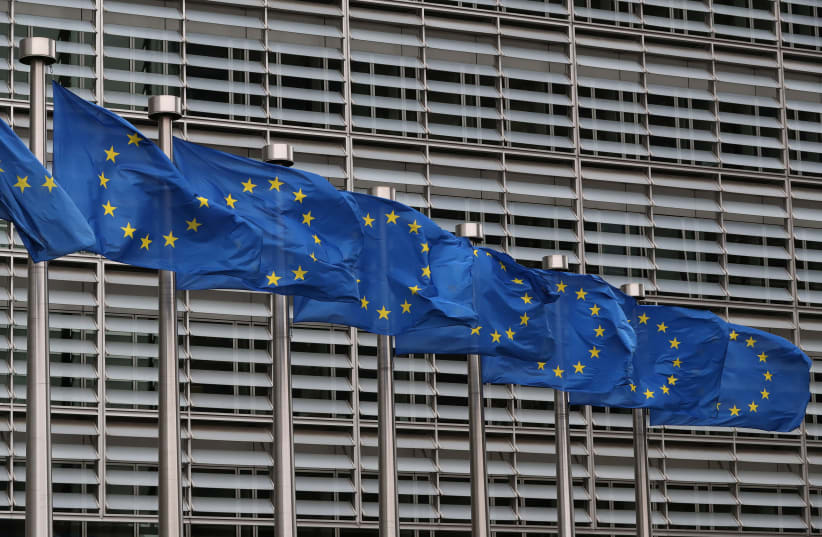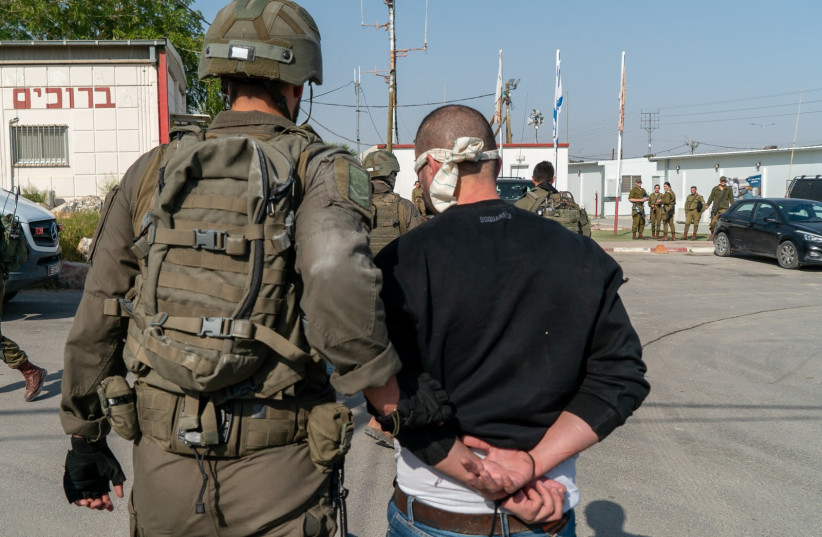Six European nations jointly condemned the fatal Palestinian shooting of three Israelis and the settler attack against the West Bank town of Huwara last week, as they called for an end to such violence.
“We strongly condemn recent terrorist attacks that killed Israeli citizens,” the countries of France, Germany, Italy, Poland, Spain and the United Kingdom stated.
“Terrorism can under no circumstance be justified,” they said as they referenced Sunday’s fatal shooting in Huwara of two brothers Hallel Menachem, 22, and Yagel Ya’acov Yaniv, 20 and Monday’s Jordan Valley fatal shooting of US-Israeli citizen Elan Ganeles, 26, as he drove to a wedding.
“We strongly condemn recent terrorist attacks that killed Israeli citizens.”
France, Germany, Italy, Poland, Spain and the United Kingdom
The six nations said they also “strongly condemn indiscriminate violence by Israeli settlers against Palestinian civilians, including the destruction of homes and properties,” as they referenced the Sunday night settler attack against Huwara during which a Palestinian man Sameh Aqtash, 37, was killed and dozens of homes and vehicles were torched. The IDF is investigating his death.
The six nations said, “we are saddened by all loss of life. These acts can lead nowhere, except to more violence. Those responsible must face full accountability and legal prosecution. All unilateral actions that threaten peace and incitement to violence must cease.”
Despite the violence, the six nations said they were hopeful that the rare Aqaba meeting in Jordan last week in which officials from five governments — the Palestinian Authority, Israel, the United States, Egypt and Jordan — spoke about ways to halt the hostilities.
Egypt to host second round of talks
Egypt is expected to host a second round of talks in Sharm el-Sheikh prior to March 22, when the month-long Ramadan starts. It will overlap with Passover in April, and concern that the overlapping holiday periods will spark additional violence.
“We urge all parties to refrain from making this fragile process derail, and call on all parties to make good on the commitments they made in the Aqaba meeting by de-escalating in words and deeds and to restore calm, in order for those efforts to blossom and to make the next meeting in Egypt a success,” the six nations said.
“There can be no desirable outcome other than a just and lasting peace for all,” they stated. They added that they opposed unilateral activity including Israeli settlement activity.
“We urge the Israeli government to reverse its recent decision to advance the construction of more than 7,000 settlement building units across the occupied West Bank and to legalize settlement outposts.
The European Union, the United States and the United Nations have all condemned the Huwara violence.
In Huwara on Friday a delegation of 19 diplomats European Union Representative Sven Kühn von Burgsdorff surveyed the damage from the attack and met with residents.
“Settler violence must stop because if it continues there is no future for this place,” Burgsdorff said has he stood near a building, which had one wall that was still black from the smoke of the fires that were lit during a settler vigilante attack against the town, located on Route 60, a main thoroughfare that stretches between Jerusalem and nearby Nablus.
The shops that line the road, were shuttered due to a military order due to expire on Friday night, that banned commerce in the days following the attack.
They stopped in the village of Za’tara on the outskirts of Huwara and visited the family Aqtash who had been killed during the attack. They then proceeded to view the site of a number of arson attacks off Route 60 in Huwara, including one that belonged to the Abu Sares family.
Their daughter Lamer described how she had been in her home at night when her mother heard the sounds of an attack and told her to run and close the door.
“I was sure that no one could break the door because it was very strong,” she said. “My mother put us in a small room and went to the roof to see what was happening around us,” Lamer recalled.
“Settlers started throwing stones and breaking the windows. I was very scared. It was the toughest night of my life. I thought I would die and not live to see the morning.”
“There were more than seven and eight settlers who attacked the house,” she said. “They broke anything they could… and put benzene and wood on the vehicles to light them on fire,” she said.
One of the attackers, she recalled, danced around the burning vehicle and another attacker shot in the air. Everything was caught on cameras, she said, including how the settlers burnt the cars in the lot and threw tear gas at their home, which almost suffocated them.
Burgsdorff, who spoke after Lamer finished her narrative of the attack, said the violence Huwara experienced was “the result of unhinged settler violence and we strongly condemn it in the strongest possible terms.”
He recalled that on that night, the EU had attempted to internee at the highest political level with calls to both Israeli and Palestinian officials urging restraint and de-escalation.
“Accountability” must be “fully insured and the perpetrators brought to justice,” Burgsdorff said.
Israel has a responsibility to provide protection for Palestinians, he added.
“If there is no protection for Palestinian civilians, they can not live in peace and freedom” and can not work to provide for their families, he said.

